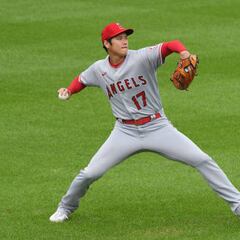Why did former Astros GM Jeff Luhnow delete data on his phone during MLB’s ‘sign-stealing’ investigation?
While it’s not likely that he will face any further penalties, this new information certainly doesn’t paint the former GM in a favorable light.


Though the scandal of 2020 is behind us, it would appear that there are still some things that didn’t come to light about the Houston Astros and their management.
What was former Houston Astros GM Jeff Luhnow trying to hide?
According to recent reports, former Houston Astros general manager Jeff Luhnow deleted data from his cell phone during MLB’s investigation into his team’s sign-stealing scheme two years ago. Interestingly, in response to the allegations, Luhnow has maintained that he only deleted sensitive material concerning his wife. It should be noted, however, that MLB has alleged that Luhnow deleted backup data in addition to other information from his mobile. Though the deletion of phone data was not among the penalties described in commissioner Rob Manfred’s original report regarding the sign-stealing investigation, it’s important to note that said infractions are now part of soon-to-published book about the Astros scandal by Evan Drellich. In an exerpt published recently, Luhnow’s credibility is clearly brought into question:
MLB gave a warning: do not erase anything off your phone. Jeff Luhnow did it anyway.
— Evan Drellich (@EvanDrellich) August 24, 2022
Wrote Manfred: "While you explained that you were simply deleting sensitive personal photographs, I have no way to confirm that you did not delete incriminating evidence”https://t.co/FQCplkMhQC
“Your credibility is further impacted by the fact that you permanently deleted information from your phone and its backups in anticipation that my investigators would seek to search your phone,” Manfred wrote to Luhnow. “You did not tell my investigators that you had done this until they confronted you about it in your second interview. While you explained that you were simply deleting sensitive personal photographs, I have no way to confirm that you did not delete incriminating evidence.”
“In addition to submitting to two interviews by the Commissioner’s Office, the Astros and MLB had complete unfettered access to every text message I sent or received during the relevant time period,” Luhnow said. “MLB never identified a single text that suggested I had any involvement in the matter — and the League had plenty of texts to make its case. In fact, the investigation uncovered 22,000 text messages from the alleged actual participants in the sign stealing. The alleged participants openly texted in real time about sign stealing activity — and not a single communication implicated me, directly or indirectly, in any way, shape or form. I was not mentioned in these contemporaneous texts because I was not party to sign stealing activities.”
What is sign-stealing and how were the Astros involved?
To be clear, sign-stealing is nothing new. It has in fact been a part of the game for more than a century now and in all likelihood is going nowhere. As fans of baseball will know, there are a whole host of unspoken cues - normally conveyed via hand movements - between pitchers and catchers. These cues are used between the pair in order to select the best type of pitch - curveball, fastball etc. - based on a batter’s profile. As you’ve probably already guessed, decoding those unspoken cues would be sign stealing and more importantly removes the element of surprise that a pitcher enjoys when facing whoever is at the plate.
Astros cheating scandal timeline: A look at Houston’s sign-stealing controversy #AstrosBaseball #AstrosDeHouston #LevelUp https://t.co/qcA5I52es8
— Houston Astros Fans (@AstrosSupport) August 24, 2022
Related stories
Where the Astros themselves are concerned, it’s important to have a bit of context here. Back in 2014, MLB gave managers one opportunity per game to challenge a call on the field - excluding balls and strikes - using a video replay system. What the league couldn’t have foreseen at the time is that the Astros would actually use their video replay room to spy on opposing teams’ signs. To be more specific, the Astros utilized the center-field camera to steal signs and what’s more is that it didn’t stop there. As the investigation would later uncover, a call would be made to the video review room by then bench coach Alex Cora. On some occasions, the signs were relayed via text messages to either a smartphone in the dugout or a smartwatch of a staff member. MLB also noted, that Cora eventually had a monitor installed outside the Astros’ dugout with the center-field camera feed on it for the players to watch. The players would then bang on a trash can with a bat or a massage device known as a Theragun once or twice to signal to the batter to be ready for a curveball or another off-speed pitch. If it was a fastball, they would not bang on the trash can.
What happened to Jeff Luhnow?
While there were varying disciplinary measures handed down to the team and its execs by MLB, where Luhnow specifically was concerned, he received a one-year suspension for his part in the sign-stealing scandal. Though he maintained his innocence throughout, Luhnow would eventually be fired by Astros owner Jim Crane following the announcement of the suspension. “I am not a cheater,” Luhnow said at the time. “Anybody who has worked closely with me during my 32-year career inside and outside baseball can attest to my integrity. I did not know rules were being broken.” What’s the former baseball exec up to now? You might be surprised to know that Luhnow has actually switched sports. Today, the 55-year-old is the owner of a soccer club having purchased CD Leganés of Spain’s second division earlier this summer.

